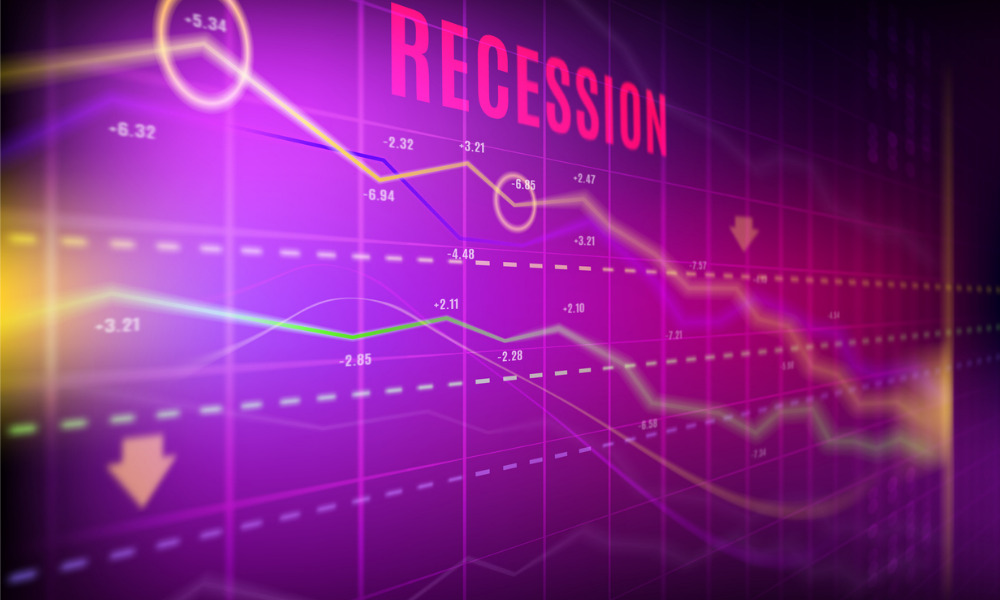CIBC Capital Markets breaks down the possibilities for 2023

The increasing likelihood of a US recession this year is placing the Canadian financial system at major risk, according to CIBC Capital Markets.
While signs are pointing to a lack of a recession across North America during the early months of 2023, keeping an eye on the “deepening” US Treasuries yield curve inversion would help detect a recession in its earliest stages.
“When long rates fall below short-term yields, that has historically been a fairly good guide to recession risks ahead,” said Avery Shenfeld, managing director of economics at CIBC. “The only recession it failed to clearly signal was the 2020 COVID shock, which came on too suddenly, and from a non-economic source.”
Despite CIBC’s initial predictions of negative Q1 GDP growth rate on both sides of the border being “too pessimistic,” Shenfeld said that the inverted curve now apparent in the US is a recession indicator “because it implies investors think tough times will compel an easing in monetary policy and lower short rates.”
Adding to the credibility of this indicator are corporate bond spreads (“which widen ahead of a recession on credit risk concerns”) and equity market performance (“which weakens as a recession approaches on earnings fears”).
“As of [February 13], that model was consistent with a 31% probability of being in a US recession six months hence,” Shenfeld warned. “That’s a new high for this expansion, suggesting that we’re clearly not out of the woods. And a US recession in most cases is sufficient to generate a Canadian downturn.”



